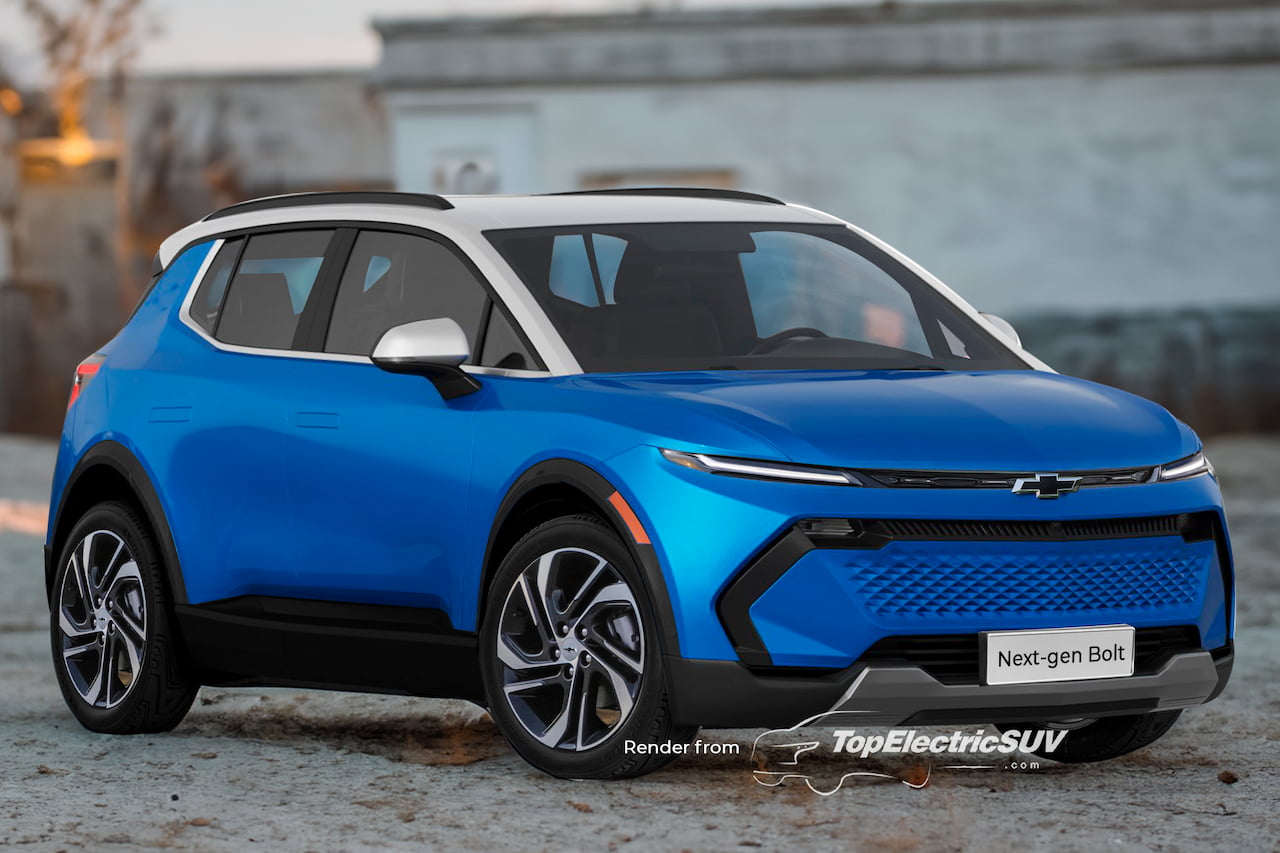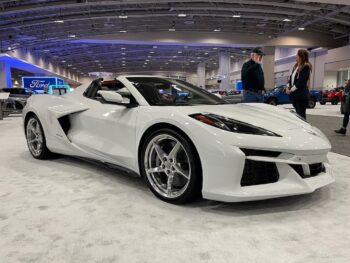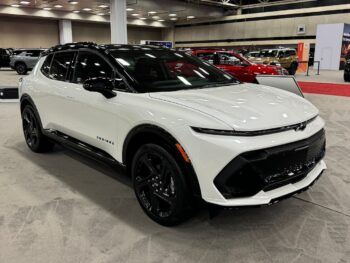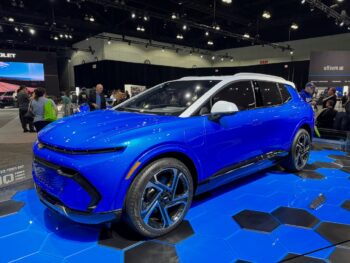Update: ‘LFP Battery’ and ‘Price & Release Date’ sections updated.
On July 25, 2023, during GM’s Q2 2023 earnings conference call, Chair and CEO Mary Barra announced a next-gen Chevrolet Bolt. At that time, there was no confirmation if it would be a pair of a hatchback and a crossover with an EUV suffix or just a single car. However, now, we understand that the company is working only on a next-gen Chevrolet Bolt EUV, eschewing the hatchback version.
On the new Chevy Bolt
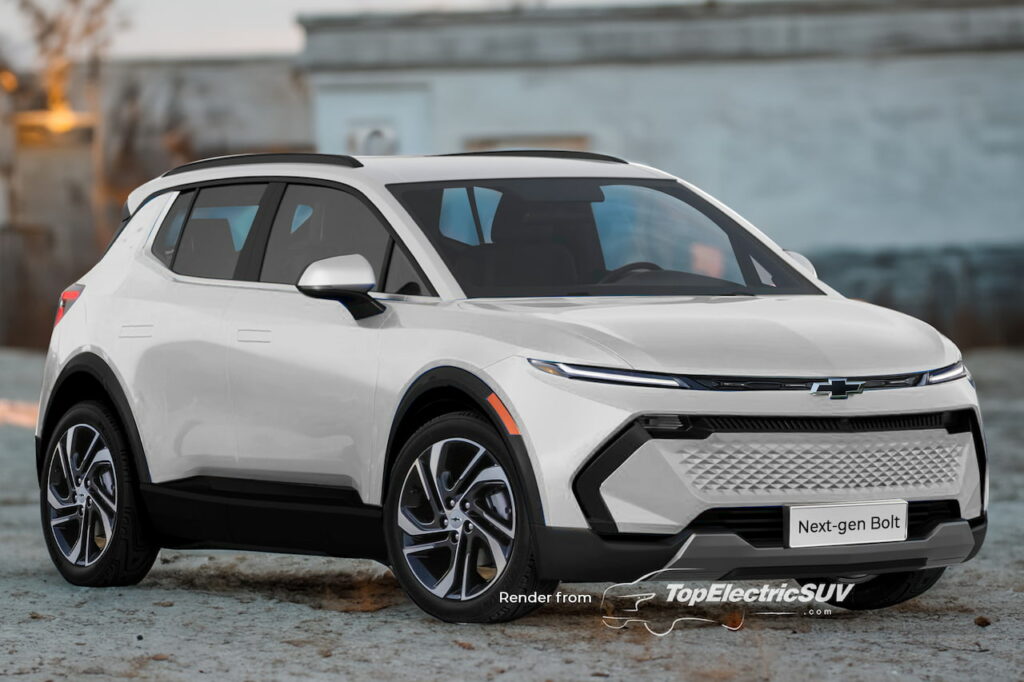
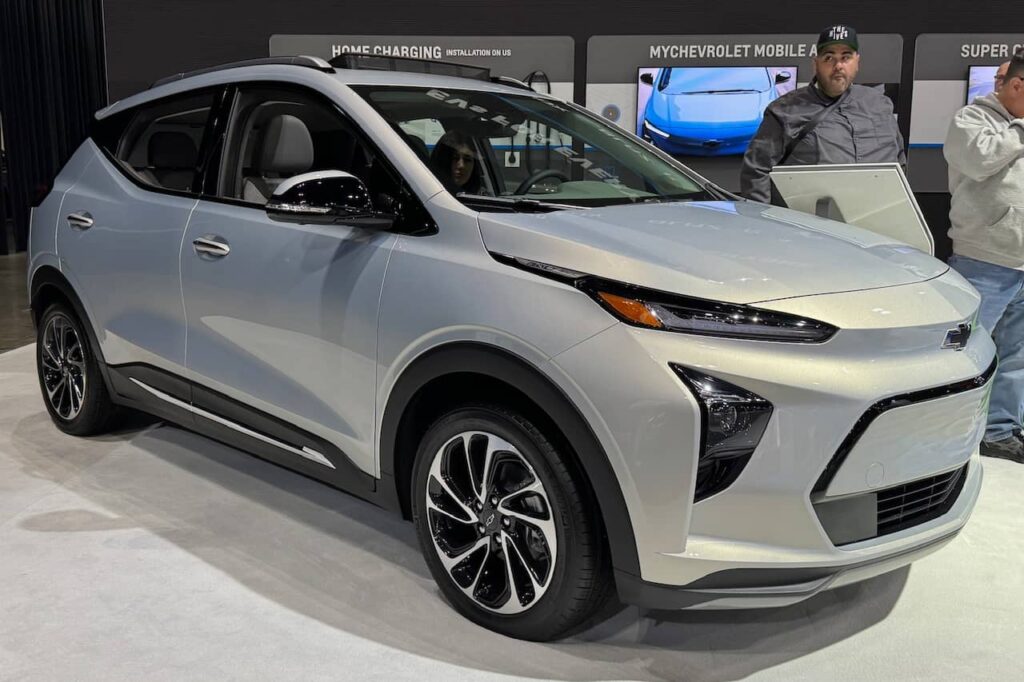
The next-gen Chevrolet Bolt EUV would be a heavily reengineered version of the first-gen model, not a vehicle conceived from the ground up. GM will launch “a new Bolt” and “execute it more quickly compared to an all-new program,” Barra said during the company’s Q2 2023 earnings conference call. This approach will significantly reduce the engineering cost and reduce the development time, she added.
Crossover Design
On October 24, 2023, during GM’s Q3 2023 earnings conference call, Barra indicated that the next-gen Chevrolet Bolt will only be a crossover, saying that the company will leverage “the best attributes of today’s Bolt EUV.” Releasing an updated version of the current model instead of a completely newly developed car will save GM billions of dollars in capital and engineering expenses and help it start sales two years earlier, she added. Since the earnings call, a GM spokesperson has also confirmed that the next-gen Bolt would only encompass the EUV model, as reported by InsideEVs.
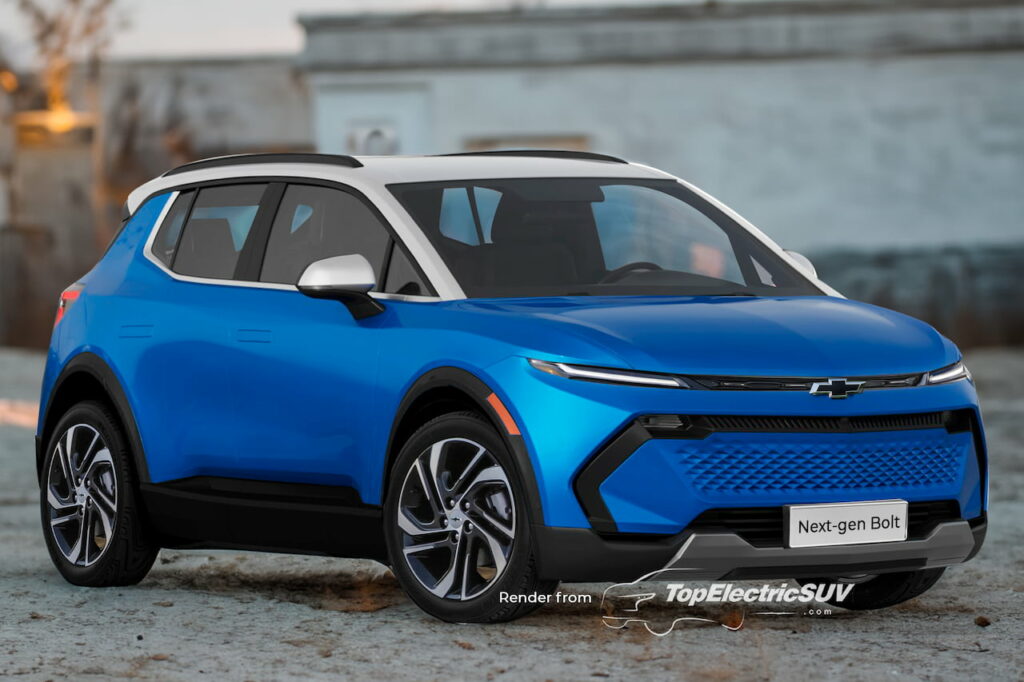
LFP Battery
During the call, GM’s boss also revealed that the company will use an improved battery pack that consists of LFP cells (instead of more advanced but expensive Lithium-ion cells) and the “unit cost will be substantially lower.”
The next-gen Chevrolet Bolt will be the first model to have LFP cells across GM brands. Compared to Lithium-ion cells, LFP cells are cheaper, ensure steadier production, last longer, and are less prone to cold weather. However, they have a lower energy density, which means the battery packs containing them either have a lower energy storage capacity or are heavier.
LFP cells make perfect sense for urban EVs like the Chevrolet Bolt, which don’t need to deliver a long driving range or offer superb driving dynamics. That said, we’re expecting GM to work on improving the charging times and the kWh/mile consumption in the new model.
In February 2024, GM hired Kurt Kelty as its vice president of Batteries, a new role. Kelty was a vice president at Sila, and prior to that, he headed the battery development team at Tesla for 11 years. Kurt will report directly to GM President Mark Reuss. He will be responsible for the company’s battery cell strategy and a new end-to-end approach. He will oversee the use of raw materials, R&D and investments in new technology, the commercialization of cells and packs, recycling, etc.
Heat pump
One common feedback from Bolt EUV customers is how the lack of a heat pump is hurting range during winter. We expect GM to include a version of the ‘Ultium energy recovery’ in the next-gen Bolt to address this issue.
NACS charging port
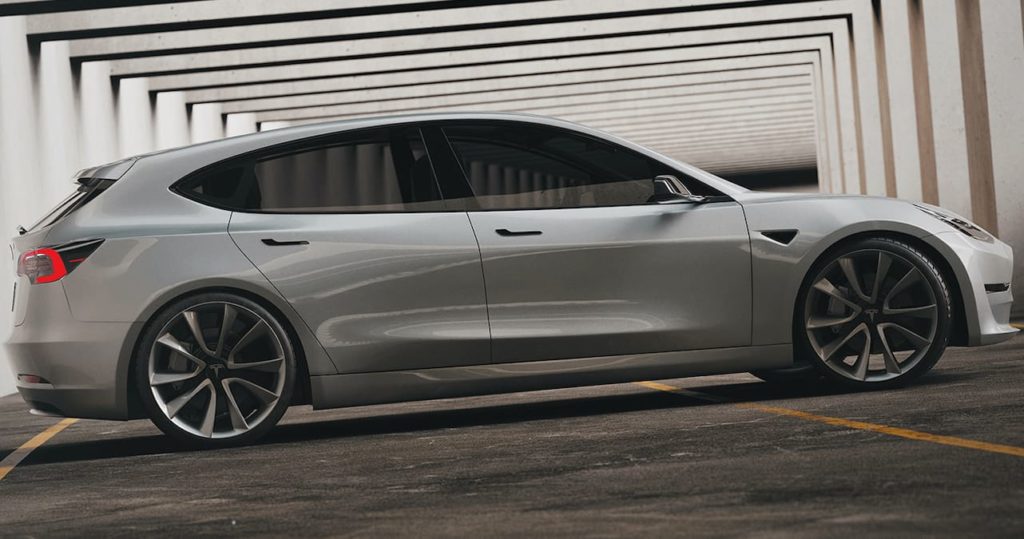
Unlike the current EUV, the next-gen Bolt will have an NACS charging port. Thus, customers will be able to charge it using 12,000+ Tesla Superchargers across the U.S., Canada, and Mexico. Electrify America, which has 859 charging stations with 111 Level 2 chargers and 3,729 fast chargers as of November 25, 2023, will start offering a NACS connector option by 2025.
Price & Release Date
Barra confirmed that the next-gen Bolt will debut in 2025, while speaking at the Automotive Press Association in Detroit, on December 4, 2023. We expect the launch of the next-gen Chevrolet Bolt in the U.S. towards the end of 2025, with prices starting at around USD 25,000 in the base configuration.
In a recent interview with Barron’s, Barra reaffirmed that the next-gen Bolt will arrive in 2025 and revealed that it will be a MY2026 vehicle at launch.
The current EUV model, which will be discontinued in 2024, starts at USD 27,800, but the company may need to release the next-gen Bolt at a lower price so that it looks competitive against the upcoming Tesla compact EV.
Featured Image: TopElectricSUV’s rendering
